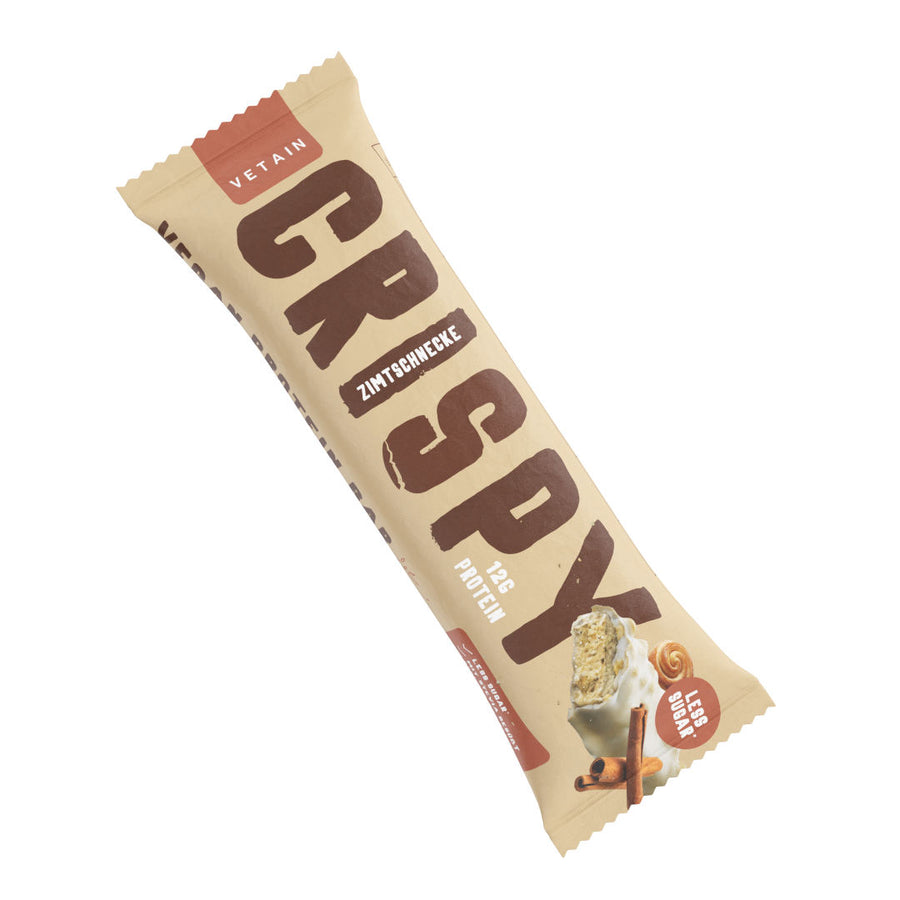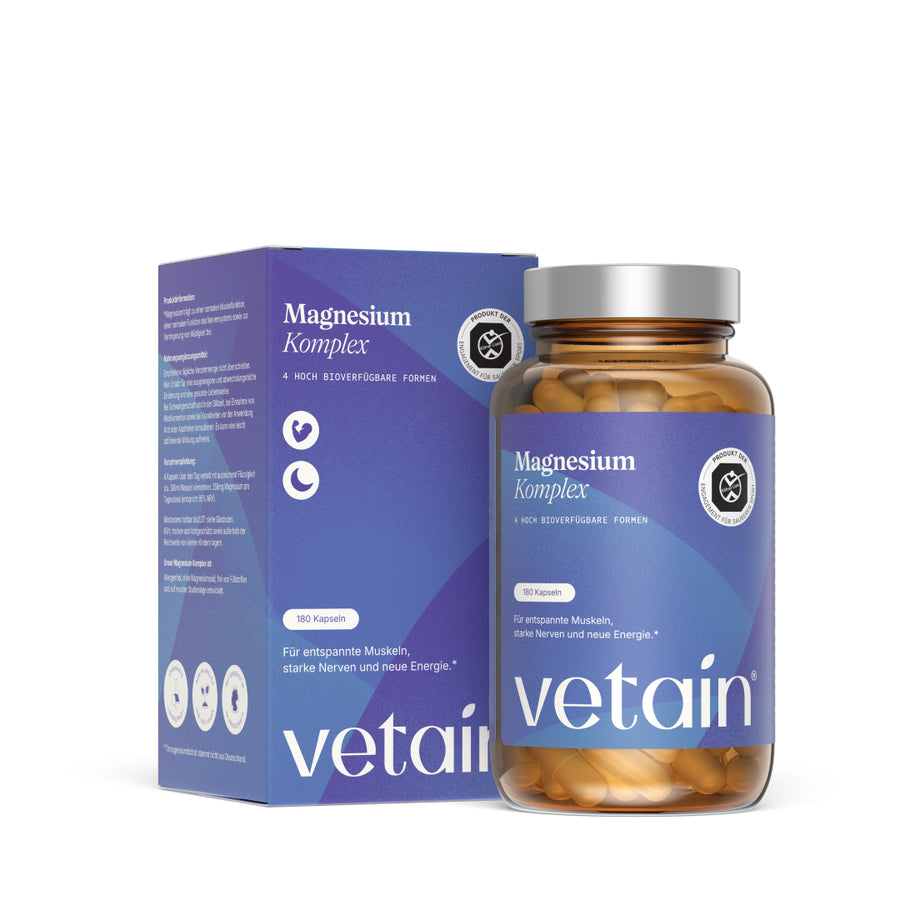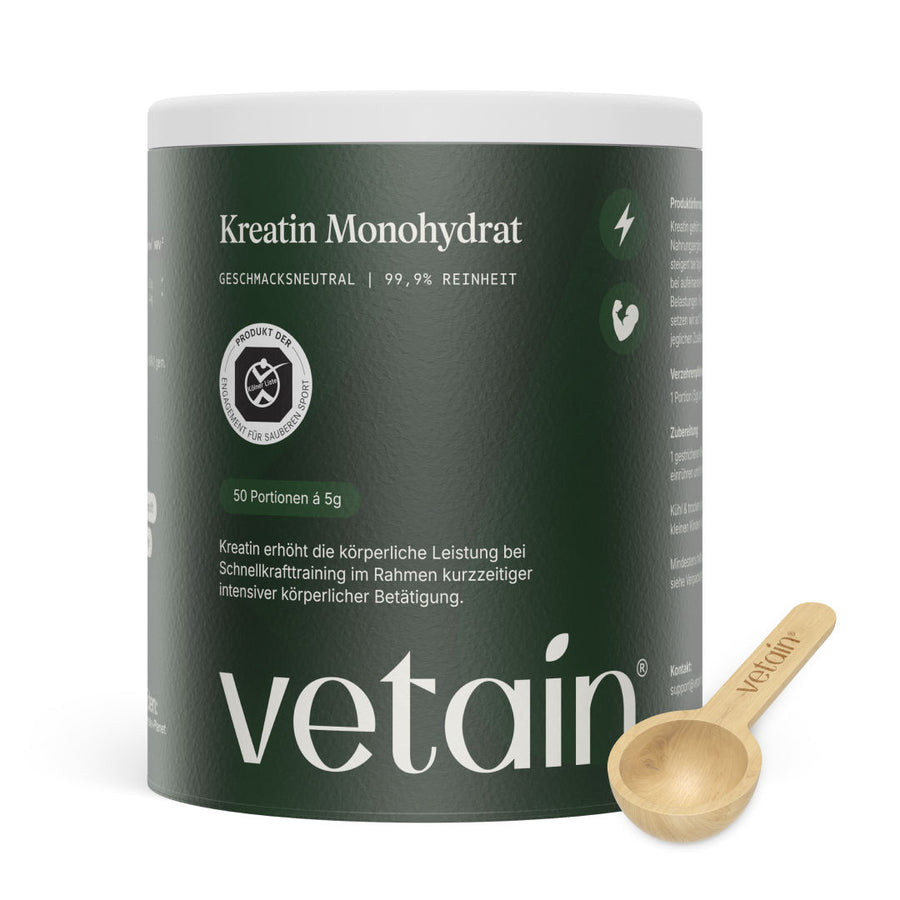Are you looking for a miracle fix to build muscle and get stronger overnight? Then I’ll have to disappoint you—this isn’t the place for that. Because, well, that doesn’t exist! What does exist are supplements that can match your training. In this article, you’ll learn which supplements for muscle growth really matter.
Your quick take: Which supplements help with muscle growth?
The best-known supplements for muscle growth include protein shakes, creatine, magnesium, and zinc.
Some supplements have a direct effect (e.g., protein) while others work more in the background (e.g., omega-3s)—but are just as important.
Protein shakes, bars & more are increasingly popular because they’re an easy source of protein on the go.
Which supplements you need is individual—it depends on your training goal, diet, and more.
Supplements with a direct impact
Some supplements can have a direct impact. You probably know many of them—and maybe you’re already taking some! Let’s dive in:
Which supplements matter for building muscle? Protein, creatine, zinc, vitamin D, magnesium, and specialized supplements for pros.
Protein (with a high EAA content)
Protein is arguably the most important nutrient in sports: it provides (essential) amino acids and thus contributes to building muscle mass.
Extra tip: Protein also helps with the maintenance of muscle mass. If you know you won’t be training as often for a while, getting enough protein can help you keep your progress.
EAAs (essential amino acids) are especially important: your body can’t make them, so you must get them from food. Some brands list EAA content on their products—otherwise, a quick search helps!
Supplements: bars, powders (more on that later!)
Food sources: eggs, legumes, nuts
Creatine
- Creatine increases physical performance in short-term, high-intensity, explosive exercise (with 3 g of creatine per day).
- Supplement: creatine monohydrate
Food sources: meat, fish, animal products
%-product_content-%
Want to learn more about creatine?
What is creatine?
What does creatine do?
Zinc
Zinc contributes to normal protein synthesis. That’s the physiological process by which the body builds proteins.
Supplements: usually capsules or tablets
Food sources: nuts, legumes, meat
Vitamin D
Vitamin D helps maintain normal muscle function. In short: it’s important so that your muscles can work normally.
Supplements: if deficient, as drops, capsules, or tablets—ideally combined with vitamin K2.
Food sources: made in skin via sunlight; also fatty fish, eggs
Magnesium
Like vitamin D, magnesium supports normal muscle function.
Supplements: most often capsules or powder
Note: There are many forms of magnesium. Try what suits you—or choose a combo product.
Food sources: whole grains, leafy greens, nuts
By the way: Is magnesium better before or after training? Find out here: Magnesium before or after exercise?
%-product_content-%
Pro-level supplements
Which other supplements help with muscle growth? There are additional options like beta-alanine or L-citrulline. Since these are more for advanced athletes, we’ll stick to the basics here.
Supplements with an indirect impact
Many nutrients don’t act directly on muscle growth but are still crucial for your muscles. Huh? Unlike protein, for example, they don’t work on the muscle; they ensure all the background processes run smoothly so the conditions for effective training are right. That makes them at least as important—even if they sound less exciting.
Which supplements indirectly support muscle growth? Omega-3 fatty acids, vitamin B12, collagen, and several others.
Omega-3 fatty acids
Omega-3s are a major topic in sports nutrition research.
Supplements: capsules or oil (fish or algae)
Food sources: fish, algae, seeds
Vitamin B12
Vitamin B12 helps reduce tiredness—useful for training! It also supports the metabolism, which plays a role in recovery.
Supplements: commonly capsules or tablets, often as a vitamin-B complex
Food sources: meat, fish, eggs, dairy
Collagen
Collagen is a structural protein of connective tissue, which is why it’s interesting in a sports context.
Supplements: usually powder; there are vegan alternatives
Food sources: meat, fish
What else is out there?
There are more options that don’t belong to the “basics” and are more relevant if you’re training very hard or have specific needs:
BCAAs
L-arginine
MSM
Astaxanthin
Other nutrients to keep an eye on
If you work out, make sure you’re covering these nutrients. Diet alone often suffices—supplements aren’t always necessary.
Iodine (supports normal thyroid hormone production and normal thyroid function)
Selenium (helps protect cells from oxidative stress)
Folate (helps reduce tiredness and fatigue)
Iron (supports normal oxygen transport in the body)
Calcium (supports normal muscle function and contraction)
Now we know which supplements exist for muscle growth. One question remains: do you actually need them?
Do you need supplements to build muscle?
Good question—and not that simple. First, it depends on how serious and frequent your training is. If you only work out a few hours per week, you probably need fewer supplements. A protein shake for peace of mind can be enough.
If your goal is to train effectively for gains—and you stick with it—the supplements presented here can make sense. Start with the basics and see how you do. For specific goals, add others. Remember: everything is optional. You can absolutely have fun training without supplements and still build muscle.
Most important—supplements should be a complement to a balanced diet, not a replacement. Try getting nutrients through food first—for example, more leafy greens for extra magnesium.
High-protein products
Protein bars, shakes & co. are probably the best-known products when asking “Which supplements help build muscle?”—and rightly so! Protein is a daily staple for many gym-goers. The classic protein shakes, clear proteins, and protein bars are the mainstays.
Here’s a quick tour of the most common product types:
Regular protein powder
“Regular” protein powder is the all-time classic and a favorite before or after workouts. Drink it as a shake or mix it into porridge or a smoothie—endless options. These shakes are usually creamy, and powders come in flavors like vanilla, chocolate, or iced coffee.
Clear Protein
Clear proteins are fruity, light, and refreshing—the perfect option for hot days or warm evenings. Unlike regular shakes, they’re not creamy; think more soda-like. Great as an anytime drink. Typical flavors: mango-passionfruit, lemon-lime, or wildberry.
Protein bars
Protein bars (surprise!) pack a lot of protein. If you prefer eating your protein, they’re for you. Since bars are usually filling, they’re a popular snack for active people.
Do you prefer peanut or brownie—or want to try something new like berry?
%-split_content-%
What should you look for when buying?
You know which supplements matter—but the market feels overwhelming? No worries! Here’s how to find the best supplements for muscle growth:
Figure out what you truly need. Track your macro- and micronutrients for a few days and see where you might be short—or where a boost could help.
Set your criteria. Should products be vegan, organic, or have “clean” ingredients?
Check the ingredients: Is the nutrient present in a useful form and dose? Search quickly to confirm. Pro tip: If you can’t pronounce half the label, that’s usually not a great sign. ;)
Make a shortlist of products and brands and then look at the companies and their values. What fits you best?
Bottom line: Which supplements are important for muscle growth?
Plenty of nutrients have a direct or indirect influence on building muscle. Some are basics that suit most active people (like protein); others are more for advanced needs—only necessary with very high training loads or deficiencies. As always, it’s individual which supplements are right for you.
So: experiment, see what feels good, and then stick with those products.
Literatur & Quellen
Deutscher Olympischer Sportbund (2014). Nahrungsergänzungsmittel. 1. Auflage.
König D., Carlsohn A., Braun H., et al. (2020). Proteins in sports nutrition. Position of the working group sports nutrition of the German Nutrition Society (DGE). Ernährungs Umschau, 67(7).
Mosler, S. (2016). Mehr Kraft mit Eiweißshakes & Co? In: Aktuelle Ernährungsmedizin, 41(S 01).
Raschka, C. & Ruf, S. (2017). Sport und Ernährung: wissenschaftlich basierte Empfehlungen, Tipps und Ernährungspläne für die Praxis. 3. Auflage.
Ziegenhagen R., Braun H., Carlsohn A., et al. (2020). Safety aspects of dietary supplements in sports. Position of the working group sports nutrition of the German Nutrition Society (DGE). Ernährungs Umschau, 67(2).
Got questions? Send me an email—I’m happy to hear from you! :)
The information in this article does not replace individual medical or nutritional advice.





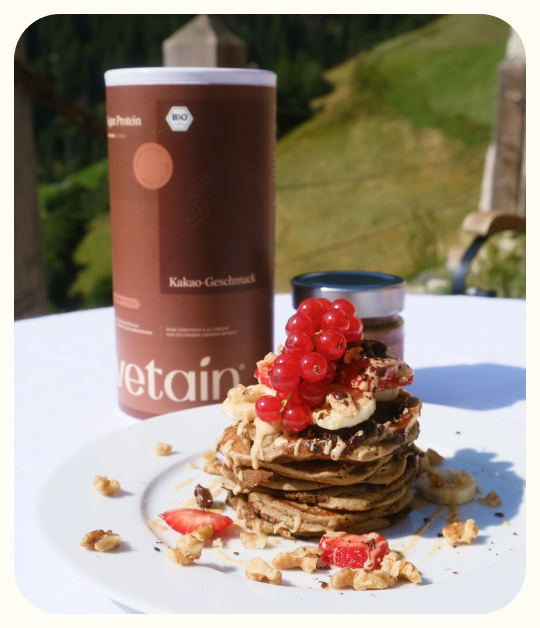


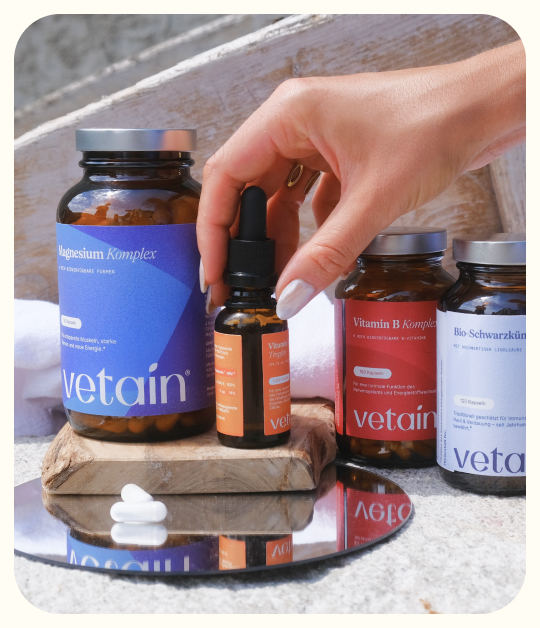






 6 Min
6 Min
 Zuletzt aktualisiert am 30.10.2025
Zuletzt aktualisiert am 30.10.2025

